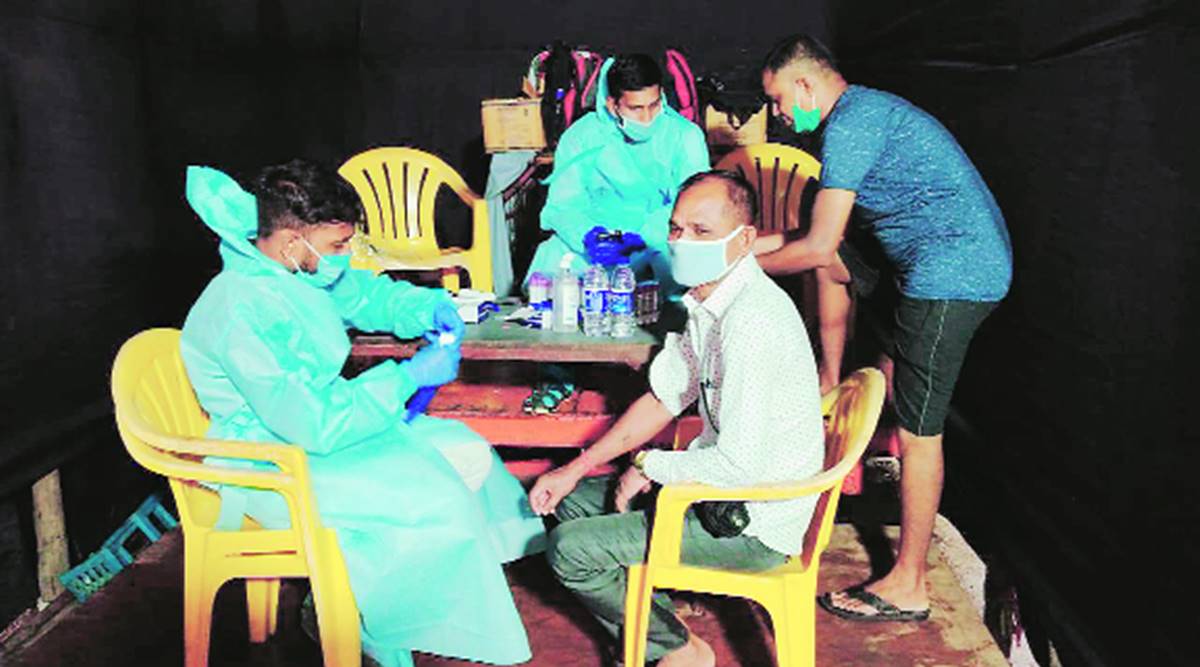 Healthcare staff collect blood samples at a camp in Chembur. (Express photo)
Healthcare staff collect blood samples at a camp in Chembur. (Express photo)The Brihanmumbai Municipal Corporation (BMC) continues to face resistance in getting people tested for antibodies in its second sero survey. Out of the 2,349 respondents that the BMC had approached, only 1,200 have agreed to be a participant in the survey. While the second sero survey was supposed to collect samples from 6,500 respondents over a period of two weeks, it has so far managed to collect only 1,200 samples since it began on August 10.
“Residents of slum colonies are more resistant in giving their blood samples,” said Sofia Imad, project incharge of the survey. BMC is collaborating with Tata Institute of Fundamental Research (TIFR) to assess whether sero prevalence in slums and non-slums has changed over a month. A sero survey in July had found 57 per cent population in slums and 16 per cent in non-slums were exposed to SARS-CoV-2.
“Public research makes sense with public participation. This survey will give definitive answers to when herd immunity will be achieved and we need more response from community,” said Professor Ullas Kolthur, from TIFR.

The survey is in three wards, Chembur (M-West ward) where medium growth rate of Covid-19 cases was found, Dahisar (R-north) with low growth rate and Matunga (F-North ward) that had highest growth rate in city. The second sero survey is covering the same wards but a different population set of 6,500 people.
In the first sero survey, 80 per cent people in slums and 30 per cent people in non-slums agreed to give their blood samples. This time, of 2,349 approached, 1,200 have given their blood samples to test for antibody against Covid-19.
Imad said 25 per cent houses they approach are locked. In Chembur, slum population has resisted from visiting camps to give blood samples. Most fear getting involved with BMC in testing, and several ask why a second round of survey is being conducted. “The team has to visit housing societies three to four times to get participants, while in slums one or two rounds have to be made,” Imad said. In residential complexes, field workers said society does not permit entry. BMC corporators are now involved in encouraging more people to give their blood sample.
According to Gayatri Nair Lobo, part of the research team, even though blood is collected by technicians in personal protective equipment, people are scared of visiting camps fearing infection spread. “We have to counsel that the data through sero survey will help government in framing policies for treatment, help them plan ICU requirement and give us answers to when herd immunity can be achieved,” Lobo said.
The first sero survey was conducted in first fortnight of July.